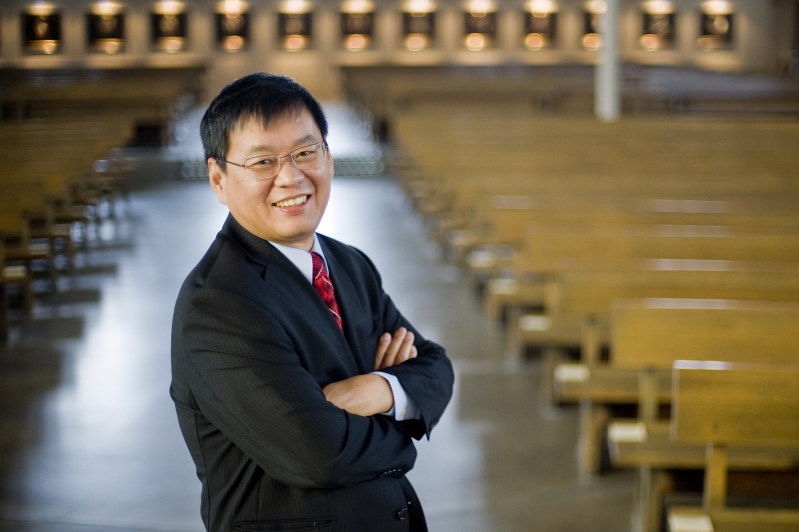
"Is China the New Roman Empire?" is one thought-provoking question Dr. Fenggang Yang, director of Purdue University's Center on Religion and Chinese Society, is scheduled to address Tuesday (Jan. 26) during a presentation at Western Michigan University.
Yang, a sociologist from West Lafayette, Ind., studies the rise of Christianity in China. During 2015, he received $3.5 million from the John Templeton Foundation to map the religious and spiritual landscape in China and study how religions have flourished in the post-Communist country. The three-year "Chinese Religious Markets and Spiritual Capital" project began last August, and he is partnering with The Chinese University of Hong Kong.
Some people think the Christian church is always repressive, but that is not factual, Yang said.
In the last few decades, China rapidly expanded its economic, political and military influences. Yang maintains that Christianity also has been rapidly growing, amid diverse cultures and religions, and despite restrictions and persecutions under Chinese Communist rule.
"In many ways, this looks like a historical replay of Christianity in the Roman Empire in the fourth century, when centuries-long persecutions were ended by the Edict of Milan in 313 AD," said Yang, noting that the Edict of Thessalonica in 380 AD made Nicene Christianity the state religion of the Roman Empire.
"Will a Milan moment be inevitable in contemporary China?" poses Yang in his lectures.
"While the future is full of uncertainties, we may use contemporary data to examine recent developments in Chinese society as indicators for a future China in the making," he said.
He said there have been religious revivals in China in the last several decades, even though religion was entirely eradicated in the 1960s and 1970s. "Because religion affects individual lives, community and society, it is important to understand how faith in the world's largest country is evolving."
Christianity and Buddhism are the two largest faiths in China today, and the Chinese Spiritual Life Survey of 2007 reports that 18 percent of the population believe in Buddhism and 3.5 percent in believe in Christianity. Currently, the government officially allows only five religions: Buddhism, Daoism, Islam, Catholicism and Protestantism, and exact numbers of religious participants are difficult to confirm, according to a Purdue University news release.
Yang founded the Center on Religion and Chinese Society at Purdue, and also launched the "Review of Religion and Chinese Society" in 2014. His research focused on religious change in China and immigrant religions in the United States.
He authored the "Religion in China: Survival and Revival under Communist Rule in 2012," as well as "Chinese Christians in America: Conversion, Assimilation, and Adhesive Identities" in 1999.







